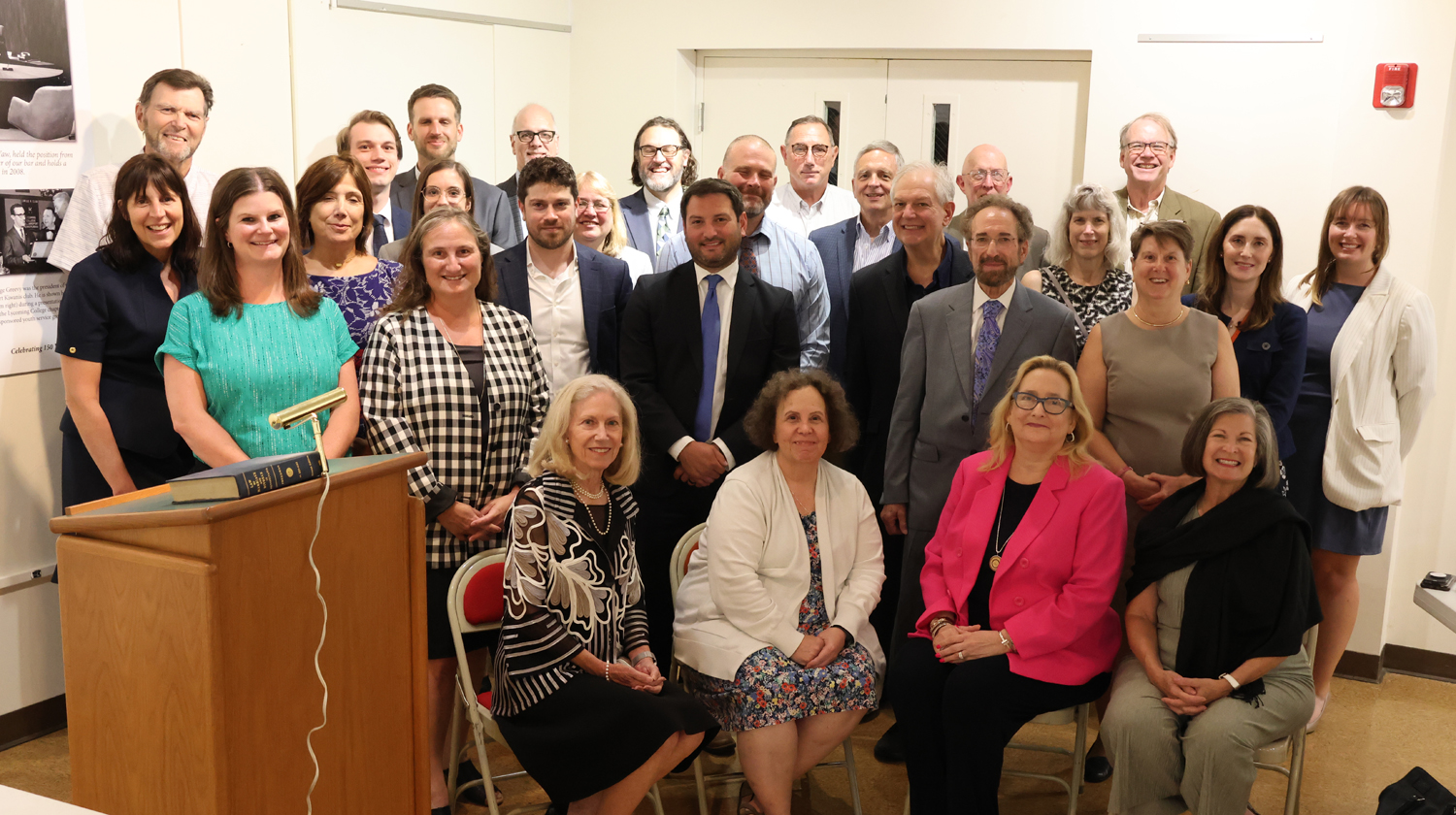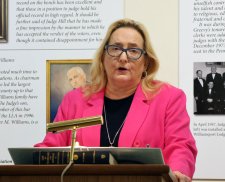Taber Museum Event Features Leaders of Pennsylania's Appellate Courts
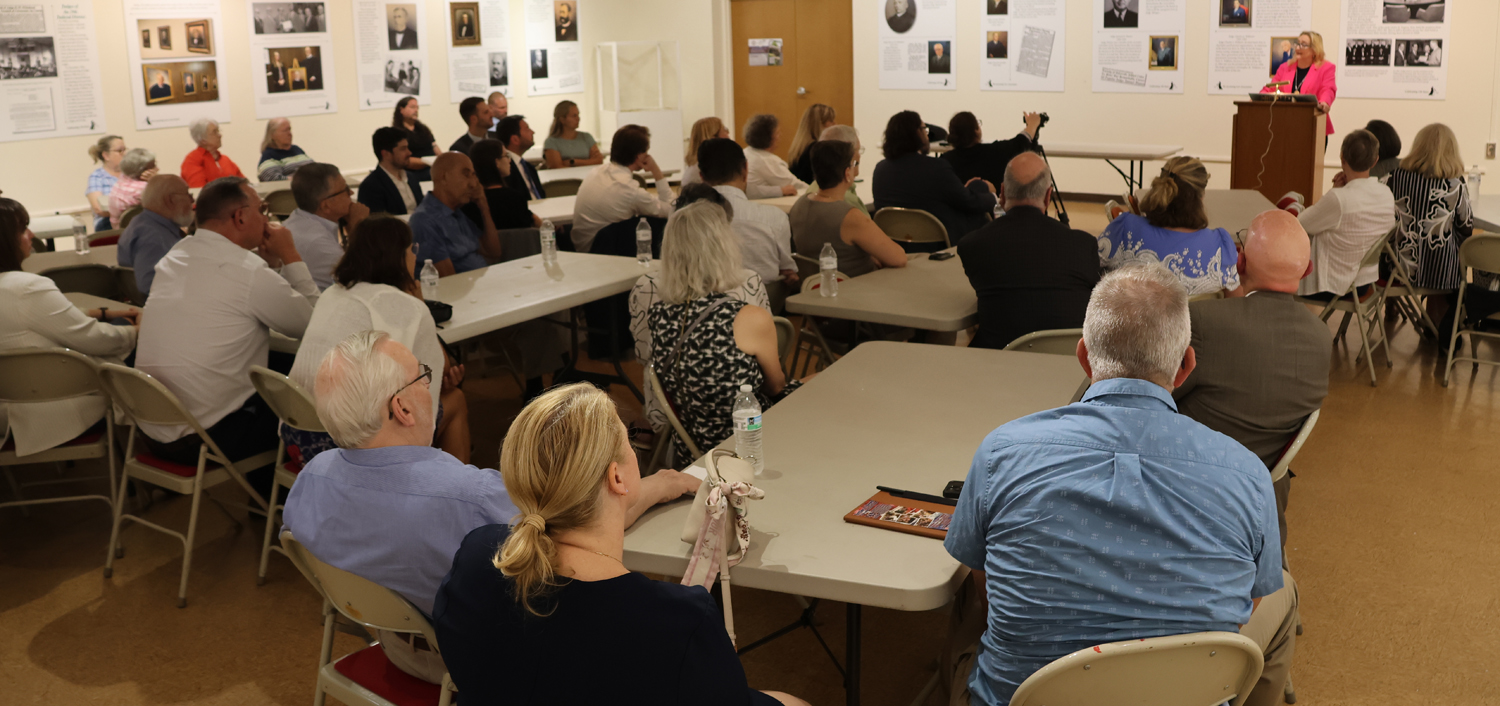 Monday, July 7, was an extraordinary day in the history of Lycoming County. At an event sponsored by the Lycoming Law Association and the Taber Museum, Pennsylvania Supreme Court Chief Justice Debra Todd, Pennsylvania Superior Court President Judge Anne Lazarus and President Judge Emeritus Bonnie Leadbetter of the Commonwealth Court were all present in Williamsport as part of the Law & Justice exhibit at the museum. The judges spoke of their personal experiences on the way to their leadership of each of Pennsylvania’s appeal courts, and travails women have faced in the history of our country being recognized as members of the bar and in reaching the position of judge.
Monday, July 7, was an extraordinary day in the history of Lycoming County. At an event sponsored by the Lycoming Law Association and the Taber Museum, Pennsylvania Supreme Court Chief Justice Debra Todd, Pennsylvania Superior Court President Judge Anne Lazarus and President Judge Emeritus Bonnie Leadbetter of the Commonwealth Court were all present in Williamsport as part of the Law & Justice exhibit at the museum. The judges spoke of their personal experiences on the way to their leadership of each of Pennsylvania’s appeal courts, and travails women have faced in the history of our country being recognized as members of the bar and in reaching the position of judge.
The event was opened by Attorney Clifford Rieders who invited the judges to this special event. In introducing the judges, Attorney Rieders mentioned the coincidence that the appointment of the first United States Supreme Court Justice occurred exactly 44 years ago.
Justice Todd was the first speaker. She was the second woman elected to the Pennsylvania Supreme Court; however, she is the first female Chief Justice of the court. She became Chief Justice in 2022 and has served on the court since 2007 when she was first elected.
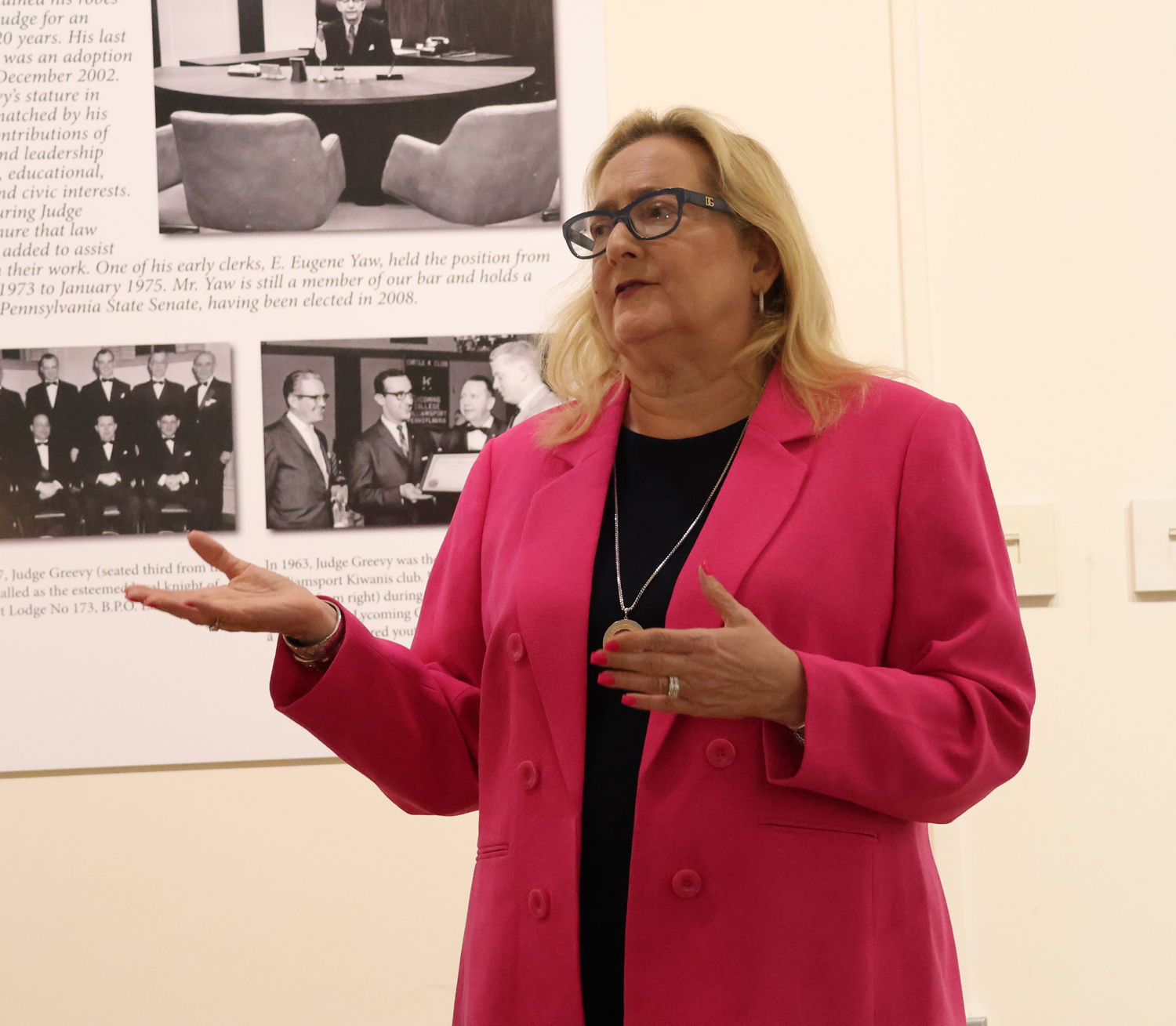 Since about age 12, Justice Todd knew she wanted to be a lawyer. She worked in the office of an attorney during her teens, continuing that work while in college at Chatham. She said both her parents and the attorney for whom she worked encouraged her to go to law school and become a lawyer.
Since about age 12, Justice Todd knew she wanted to be a lawyer. She worked in the office of an attorney during her teens, continuing that work while in college at Chatham. She said both her parents and the attorney for whom she worked encouraged her to go to law school and become a lawyer.
Justice Todd then spoke of the history of women entering into judicial service in Pennsylvania. Although the Pennsylvania Supreme Court is the oldest in the country with 300 years of history, the first female justice, Anne Alperin, was appointed by Governor Lawrence in 1961. Sandra Schultz Newman was the first woman elected to the Supreme Court in 1995. At present, three of the seven justices are female.
The first woman elected to the Superior Court was Phyllis Beck, in 1981 and Judge Genevieve Blatt was elected to the Commonwealth Court in 1973, as the first woman member of that court. Interestingly, a majority of the members of both the Superior and Commonwealth Courts are presently female. However, 2024 was the first time that all three Pennsylvania appellate courts were led by women judges.
In the discussing the extraordinary difficulty women had entering the bar in the 19th century, Justice Todd mentioned the case of Myra Bradwell. She was denied admission to the Illinois Bar and in 1873, the United States Supreme Court upheld that decision. One of the justices in a concurring opinion emphasized the natural differences between men and women and stated that the women’s “paramount destiny” was to be wives and mothers and not professionals.
In 1876 Belva Lockwood attempted to become a member of the bar of the United States Supreme Court and was denied that right because she was a woman. The decision was subsequently overturned by the Congress which passed legislation which was approved by President Hayes in 1878, which removed her “disability” as a woman and allowing her admission to the Bar. Justice Todd’s point was that the country has come a long way to where women legal practitioners and judges are quite common today.
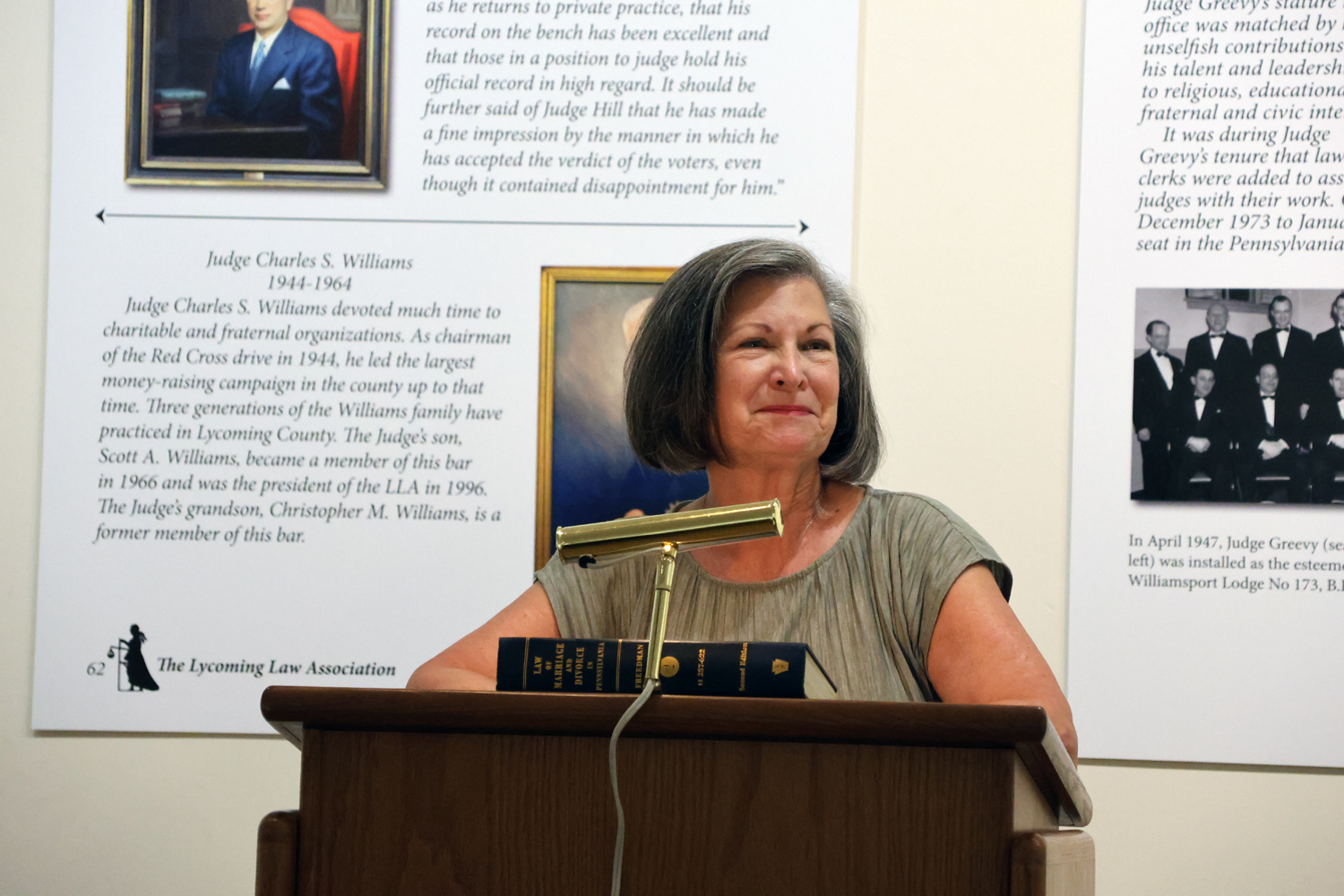 Judge Lazarus spoke from a somewhat different perspective. She grew up in New York, and again with strong encouragement from her parents, entered into the practice of law in Pennsylvania.
Judge Lazarus spoke from a somewhat different perspective. She grew up in New York, and again with strong encouragement from her parents, entered into the practice of law in Pennsylvania.
She mentioned the importance of having strong mentors to her decisions to run for office. She worked in the Philadelphia Court system and clerked for a judge in the Orphans Court. The Orphans Court decided all tax cases involving estates, and she developed an interest in that area. She was eventually encouraged to run for the Philadelphia Court of Common Pleas, and she was elected.
When she decided to run for state office, she undertook a campaign which was much different from what she experienced in Philadelphia. She got out to see the state and visited many of the counties and saw the differences in the people and the places they lived.
She discussed the Superior Court and its role in Pennsylvania. It is the busiest court in the state, handling roughly 6800 appeals a year with just 14 judges, the court is a “error correcting” court and does not have the right to overturn the discretionary decisions of county judges. Those judges must have made a mistake in interpreting the law. When writing the decision, it is important to write clearly so that the public, lawyers and later courts understand the reasons for the decision.
Judge Lazarus did discuss a theory as to why women succeed in the public service sector. It is an area where women can excel. The pay is equal, the job descriptions are the same whether you are a male or a female, creating opportunities for women to stand out in public service.
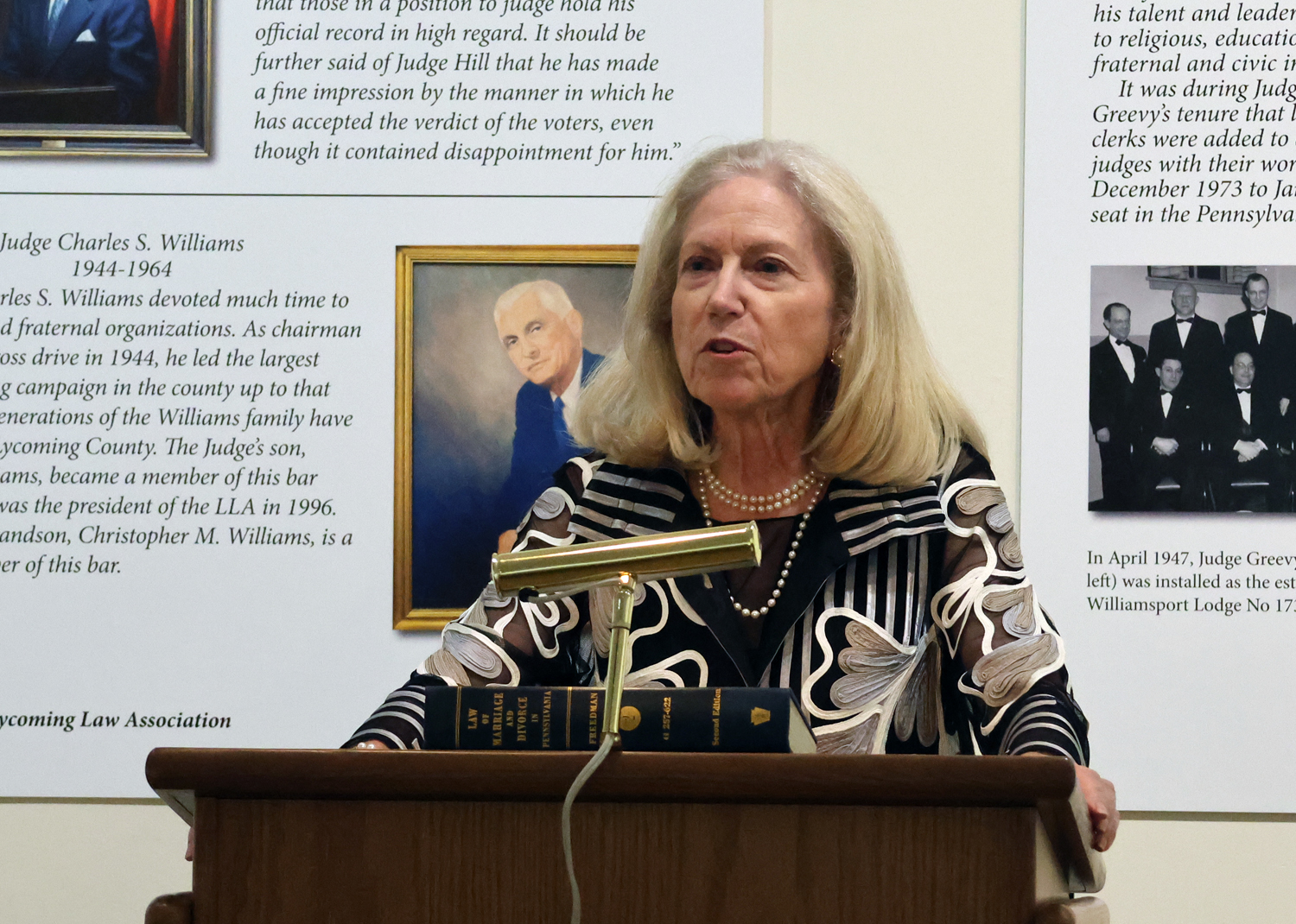 The final speaker was Judge Bonnie Leadbetter. She grew up in Texas and had no legal connections to the law other than a great-grandfather who was a judge in Franklin County.
The final speaker was Judge Bonnie Leadbetter. She grew up in Texas and had no legal connections to the law other than a great-grandfather who was a judge in Franklin County.
She did attend college and received her degree in political science. Her father suggested that she couldn’t do much with that degree so she was encouraged to go to graduate school which she did. She attended Pitt Law School.
After graduation, she attempted to find a job in the private sector and interviewed with a Pittsburgh law firm. One of the partners told her that the firm may some day hire a woman, but the person hired would never be permitted to go into the courtroom because the clients just wouldn’t stand for it. She decided to enter into public service.
She served five years in the Philadelphia District Attorney’s Office under Arlen Spector and then was in the U.S. Attorney’s Office for five years. She appreciated the lessons she learned in the public sector in that the decisions you made in representing your clients were not constrained by economics, and you would “do what was right.” She then entered into private practice, but she didn’t like doing only what the client could afford and exactly what the client wanted without concern for what was right.
As a judge, she has other constraints. You do not get to do what you want and are often constrained by the law or decisions of higher appeals courts.
Her elevation to the Commonwealth Court came in 1996 when she was offered an appointment by Governor Ridge. She ran in 1997 and, as Judge Lazarus, mentioned that the statewide campaign was exhausting. The most challenging aspect of the campaign was explaining what the Commonwealth Court did because most folks did not know anything about the Commonwealth Court.
The Commonwealth Court is a bit unique in that it has both appellate and original jurisdiction. The court does not have the same volume as the Superior Court but has a very diverse docket. Currently, she heads the court’s mediation program.
She concluded her remarks by commenting on her concerns for judicial independence. She pointed out that judges are under attack for their decisions. Often, if a judge’s opinion is unpopular, it means that the judge didn’t try to curry favor but did what was right.
At the conclusion of the prepared remarks, the judges entertained questions. All the judges commented on the importance of their staff of law clerks to their work. Because of the volume of cases, the legal research, and the need to have their views challenged in the process of preparing decisions, law clerks are important to their ability to perform their work efficiently and effectively.
Each of the judges were asked to comment on their most significant opinions. Justice Todd wrote a dissent in a Superior Court opinion that refused to allow same-sex couples to adopt. Her dissent was later adopted by the Supreme Court in overturning that decision.
Judge Leadbetter indicated that she found the tax and technology cases to be most interesting. In the early days of downloaded software, the initial view was that downloaded software (as opposed to a disk) was not taxable. The court ruled that it was taxable in downloaded form as well as disks.
Judge Lazarus finds the criminal cases involving due process questions to be most interesting.
The judges were asked their view on Pennsylvania’s system on electing judges as compared to states that appoint judges to appellate courts. Justice Todd and Judge Lazarus’s favored elected judges while Judge Leadbetter, while not opposing elected judges, is concerned about the influence of money in the election process. There is a perception in the public that the judges can be bought.
Justice Todd put in the final word. She commented that the focus of the evening’s presentation, on women serving the judiciary, did not suggest a preference for women in the judiciary. The justice pointed out that there is a role for women and men in the judiciary, and the key is equal opportunity for service.
After the events, all the members of the Lycoming Law Association who were present were invited to stand with the judges for a photograph. Later, the judges in attendance were invited to stand for a photograph.
